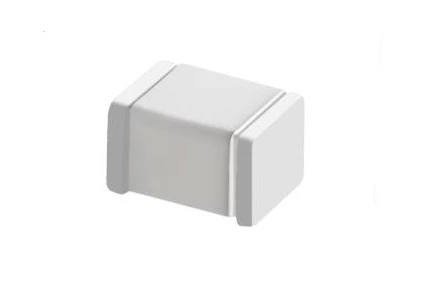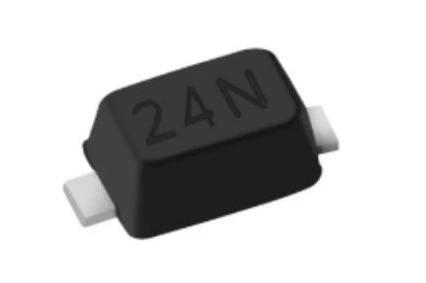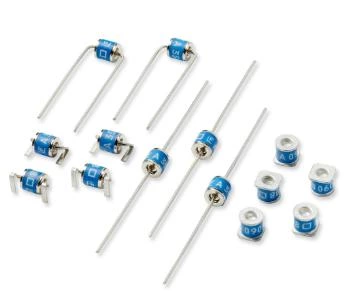Gas Discharge Tube (gdt) Explained: Principles, Applications, And Selection Guide
Introduction: The Critical Role of Gas Discharge Tubes
In electronic systems requiring lightning and overvoltage protection, gas discharge tubes (GDTs) are indispensable due to their high surge absorption capacity and longevity. Engineers often face two challenges: understanding GDT functionality and selecting optimal models for complex applications. This guide addresses both issues comprehensively.
Working Principles of Gas Discharge Tubes

How Gas Discharge Tubes Work: Structure and Discharge Process
(1) Basic Structure and Materials
A GDT comprises a ceramic/glass-sealed tube filled with inert gases (e.g., argon-neon mixtures) and nickel-iron electrodes. Under normal voltage, the gas remains insulating; during overvoltage, ionization creates a conductive path to dissipate energy.
(2)Three Stages of Discharge
-
Non-Conductive State: Gas remains un-ionized (impedance >10 GΩ).
-
Breakdown: Overvoltage triggers an "electron avalanche," forming a low-impedance path in nanoseconds.
-
Arc Sustainment and Extinction: Voltage drop post-surge restores insulation.
(3)Comparison with Competing Devices

| Feature | GDT | MOV | TVS Diode |
|---|---|---|---|
| Response Speed | Microseconds | Nanoseconds | Picoseconds |
| Current Rating | 20kA+ | <10kA | Hundreds of amps |
| Lifespan | 100k+ surges | Degrades with use | High reliability |
Key Insight: GDTs serve as primary protection for high-energy surges, while MOVs/TVS diodes handle secondary precision roles.
Core Applications of Gas Discharge Tubes
Essential Use Cases for GDTs
(1)Lightning Protection in Communication Systems
-
5G Base Stations: GDTs protect antenna feedlines against 10/350μs lightning surges (e.g., Bourns 2038 series).
-
Fiber Optic Networks: Miniaturized GDTs in Huawei/ZTE optical modules prevent ESD damage.
(2) Overvoltage Protection in Power Systems
-
Smart Meters: GDTs shield metering chips in lightning-prone areas (e.g., India’s grid upgrades).
-
Transformer Grounding: GDTs limit ground potential rise to prevent insulation failure.
(3)Industrial and Renewable Energy Systems
-
PV Inverters: Hybrid GDT+MOV protection cuts DC-side costs by 30% (SolarEdge data).
-
EV Chargers: GB/T 18487 mandates GDTs at charging ports to mitigate leakage/lightning risks.
Advantages and Limitations of Gas Discharge Tubes
Why Choose GDTs? A Balanced Perspective
(1) Core Advantages
-
High Surge Absorption: Handles 20kA (8/20μs) surges, outperforming MOVs.
-
Low Capacitance (<1pF): Ideal for high-frequency signals (e.g., RJ45 ports).
-
Zero Power Consumption: No leakage current in low-power IoT devices.
(2) Limitations and Mitigations
-
Slower Response (~100ns): Pair with TVS diodes (<1ns) for sensitive circuits.
-
AC Follow-Current Risks: Use arc-extinguishing GDTs (e.g., Littelfuse GTCA series) in AC systems.
Selecting the Right Gas Discharge Tube
5 Key Parameters for Optimal Selection
(1)DC Spark-Over Voltage
Rule: 20–30% above circuit voltage (e.g., 90V GDT for 48V systems).
(2)Surge Current Rating (8/20μs)
Minimum 10kA for industrial use (IEC 61643-11 certified).
(3)Insulation Resistance and Capacitance
High-frequency apps: Capacitance <1pF, resistance >1GΩ (e.g., TE S600 series).
(4)Package and Mounting
SMD: Compact designs (down to 5.8mm×3.2mm).
THT: Better heat dissipation for high-power systems.
(5)Compliance
Mandatory certifications: UL1449, IEC 61000-4-5.
Conclusion: The Unmatched Value of Gas Discharge Tubes

GDTs remain irreplaceable as the first line of defense against surges. Engineers must prioritize voltage ratings, surge tolerance, and environmental factors while adopting multi-stage protection strategies. As smart grids and renewables expand, GDTs will evolve to protect increasingly complex systems.